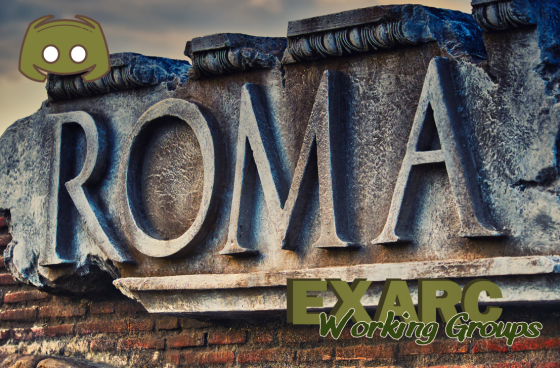
Thank you to all of those who joined for the launch event of our Roman experimental archaeology Working Group, which took place on Sunday May 12th.
Everyone who participated all hasd a different background from academic, museum employee, education, and reenactment. After the introductions to get to know each other, Lee Graña presented the book on Roman experimental archaeology for which he is the primary editor and which will be published in December 2024. The book discusses the diversity of approaches to experimental research in Roman studies and the diverse background of practitioners wishing to add to the debate, their various obstacles, and their methodologies. This was a basis for the continued discussion over the role of experimental research in Roman studies via Discord.
Ideas were discussed about what participants would like to see come out of this group. One focus of the discussion was how to integrate Roman history and Roman experimental archaeology into the educational curriculum of schools and community colleges, following the STEM requirements where possible. One contributor who works in education (Beth of Tir Na Nog Heritage Education in Wotton-under-Edge) highlighted their approach and have suggested a framework on the subject, which may be shared via the Discord page or EXARC website in future. This subject was equally important for the US attendees, who also work in education and are keen to acquire a working format for introducing experimental research at schools.
From the reenactment side, concerns were raised that reenactment often is not taken seriously by academics and/or museums. This is in contrast to the intention of many re-enactors who see an advantage in their dedication to the subject, regardless of their background (this was also pointed out in the reenactment working group). One attendee highlighted their unfamiliarity with penetrating academic circles to contribute their data or to acquire the necessary support for recording and publishing experimental research. This mediation is indeed difficult but is one intended role of the working group.
The final discussion was which format would work best for sharing data or promoting discussions. While published papers are the ideal conclusion for academic research, there is a wealth of knowledge among non-academic interested parties that would first benefit from further debates and collaborations. The potential for a topic-specific podcast following a discussion over discord was adopted favourably by most, as was the potential for a blog in which the various discussions could be updated regularly and accessed easily.
Lee will provide the group with a questionnaire to find out which topic(s) will be the focus of the next session and how it will be presented. Following the various suggestions, the format may take the form of a short presentation by one or two contributors followed by a general discussion on Discord.
We look forward to seeing how this working group will develop! If you would like to get involved, we will be creating a mailing list, and chats will take place on the EXARC Discord server (link to join below).
